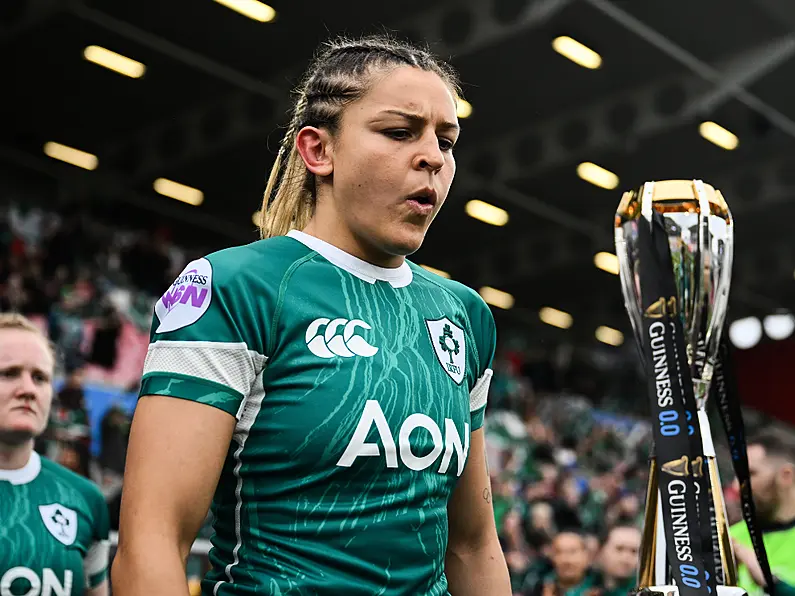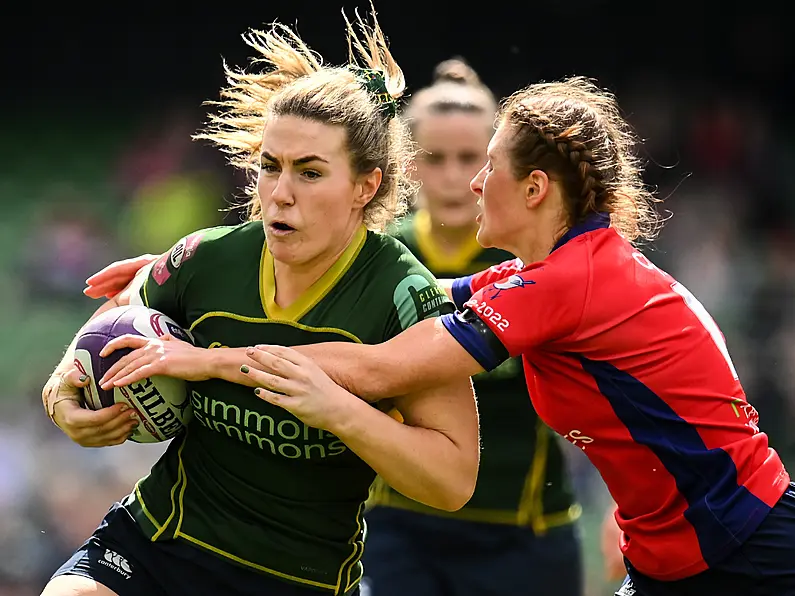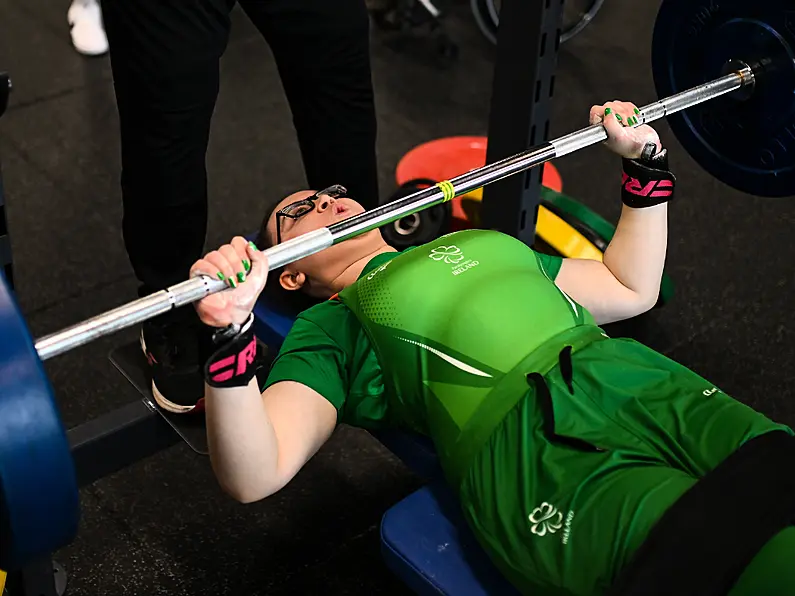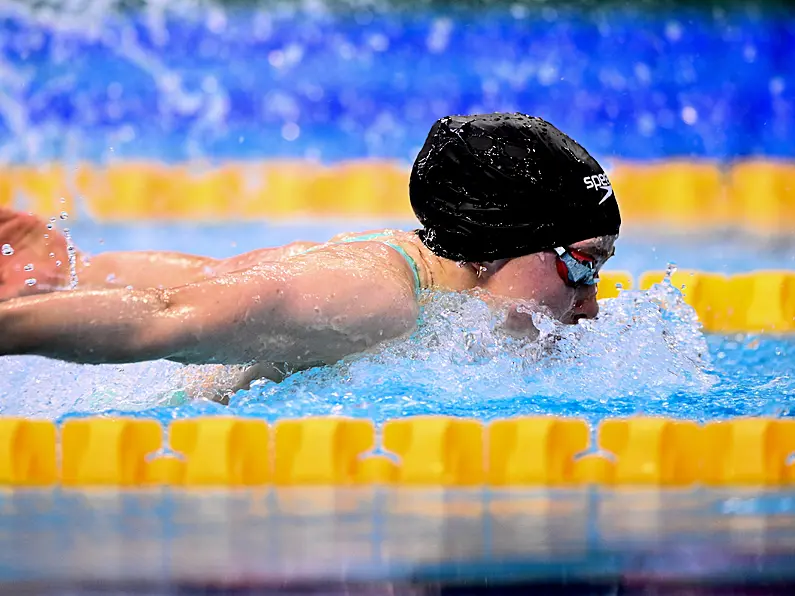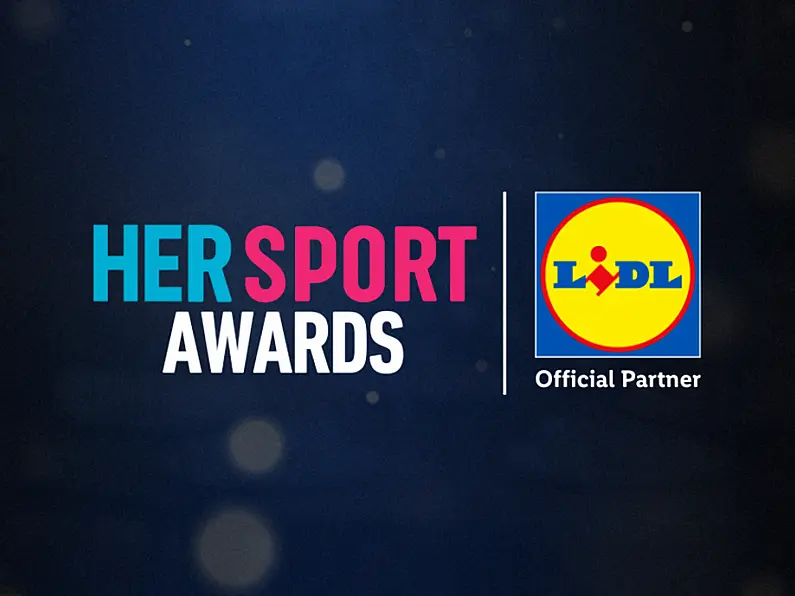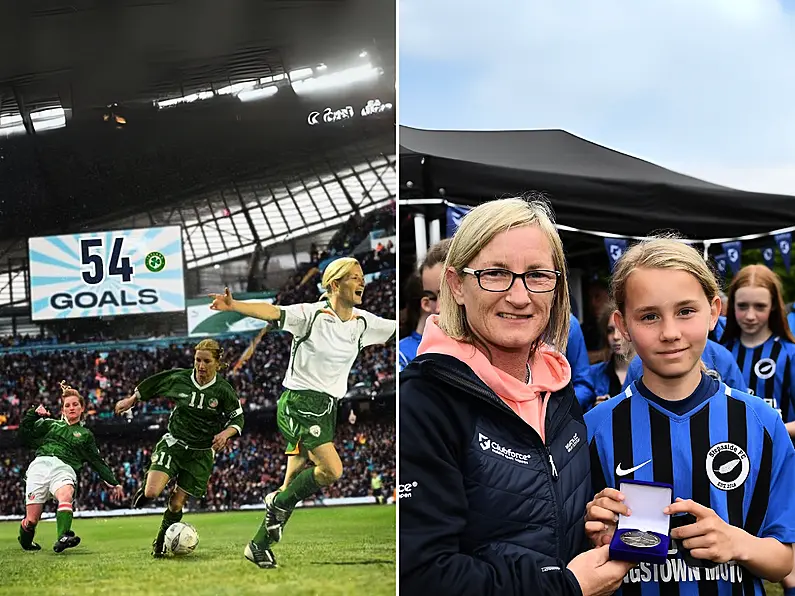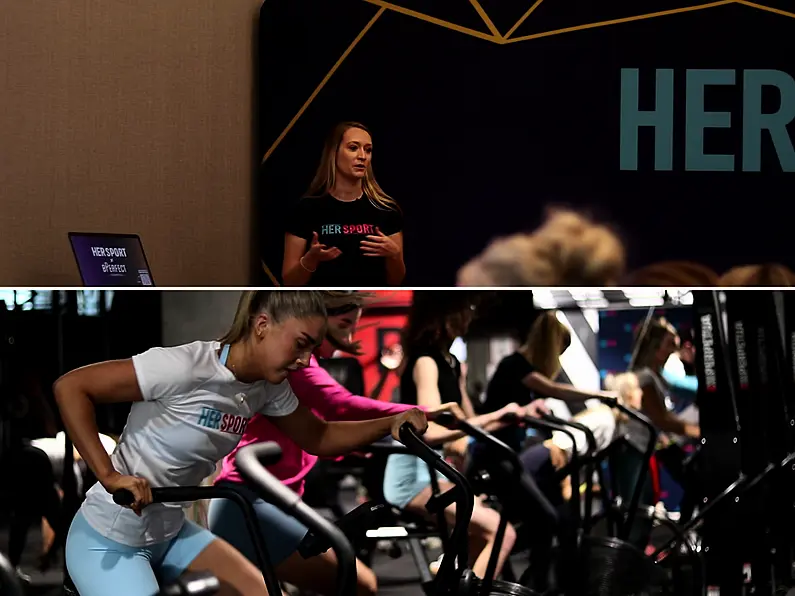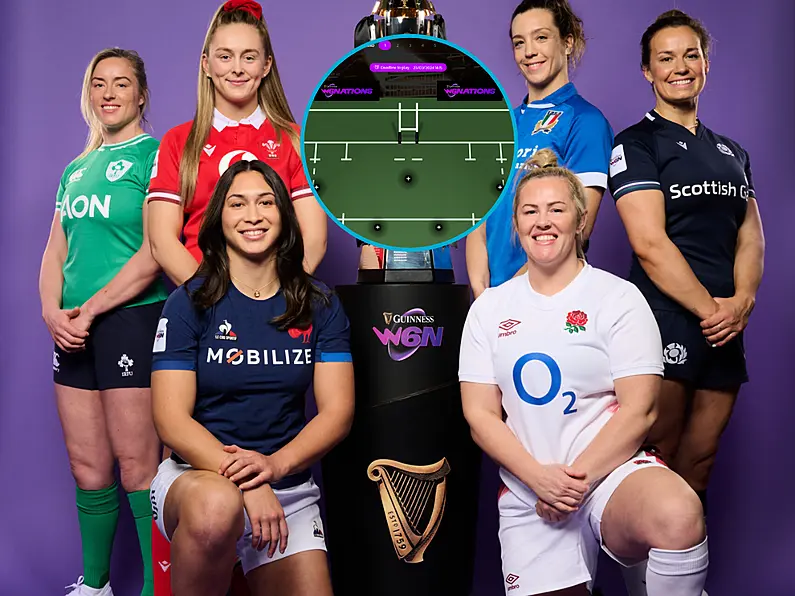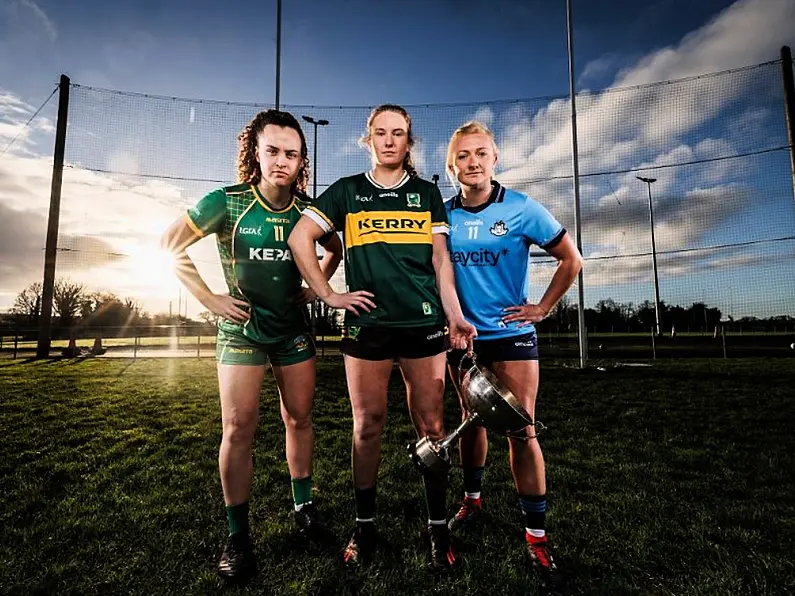Up until 2012, Corkwoman Niamh McCarthy had never heard of discus let alone tried her hand at the sport. Seven years later, she is now one of the leading stars, holding a Paralympic silver medal and three World Championship medals.
The 26 year old, who competes in the F41 category for people of short stature, won a bronze medal at her first ever World Championships in 2015, remarkably only a few years after she attended a Paralympic talent search in UCD.
The former Biological and Chemical Sciences student has enjoyed a rapid rise in the sport with a list of achievements to rival any athlete. McCarthhy followed up on her bronze World Championship medal securing silver and bronze in 2017 and 2019 respectively. With all eyes watching, on the world’s biggest stage at the 2016 Rio Paralympics, McCarthy returned back home with a silver medal. The Cork star is also a two-time European Championship medallist, bagging a silver in 2016 and gold in 2018, where she threw her way into the record books with a record breaking 31.76m throw.
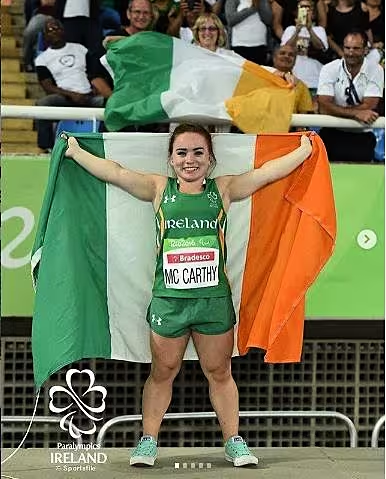
With the country in lockdown and restricted to the 5km radium, McCarthy was forced to train in her local green, located in the estate next to her house. Training was limited and the Paralympian was forced to use a tea-towel instead of a weighted disk due to the constrained space. Now, with the GAA grounds re-opened, she’s back training at her own throwing circle in Carrigaline GAA Club.
In March, the International Olympics Committee and Japanese organizers announced that the Olympic and Paralympic Games would be postponed until 2021 as a result of the coronavirus pandemic. McCarthy is glad to have more time to prepare for Tokyo, as she didn’t feel ready for the games to go ahead this summer.
“I kind of had a really tough year last year...I was getting really nervous about how ready I would actually be for Tokyo this year,” she said. “So much had happened that I really just wasn’t where I wanted to be at, technique wise or emotionally.”
“I didn’t want to show up at Tokyo this year thinking, “Oh, this is really bad timing for me”, whereas now I have that time to prepare.”
Part of the reason for this, was the stress of changing coaches. In February last year, McCarthy had to find her own coach after the Paralympics Ireland national throws coach David Sweeney, left the role. She found her own coach for a couple of months and then in October, UK-based trainer Alison O’Riordan took over the Paralympics Ireland role, and McCarthy is now working with her.
Although McCarthy wasn’t interested in the Paralympics until she got older and learned more about it, she did enjoy playing sports as a child; from tennis to gymnastics to taekwondo. Unfortunately, with her family moving around constantly, it was difficult for her to ever fully commit to a sport. She lived in Ireland until she was eight years old, then moved to England for a year, spent six years in France before returning back home to Ireland just before she turned 16.
“I got to see a lot more and experience a lot more as a kid that you know most people just don’t get,” she said. “I don’t get homesick when I’m going away because I’m kind of used to doing that anyway.”
The Paralympic silver medalist, studied science in University College Cork, but left after she got involved in discus. McCarthy doesn’t think she would have finished the course regardless, identifying that there’s a lot of pressure on young people to go to third level education straight after school.
“It’s all painted very glossy pictures when you’re choosing your college degree and what your options are, but often it doesn’t work out that way and you know people change,” she said. “There’s a lot of growing up done when you’re a teenager into your 20s, and a lot can change in that time.”

In 2012, McCarthy was invited to attend a Paralympics Ireland try out day in UCD, and as they say, the rest is history. “I took it serious (sic) from the beginning. It was pretty hard in terms of I had no knowledge of Paralympics, I hadn’t done sport in years,” she said.
A few weeks after the try outs, McCarthy received an email from the Head of Paralympic Athletics who invited her back to Dublin to be tested and classified.
Due to her classification, there’s a limited number of sports McCarthy can do in athletics and Paralympic sport. Her options were shot put, which she tried and hated, and discus, which she had a natural talent for. “I just ran with it really and once I started training and could see improvements, it was at that point that I was like, “Yeah, I can get really good at this.””
When she was selected for the World Championships in Doha in 2015, she knew she was onto something. “I was a bit like, “Oh Christ”, looking at everybody. I could see my competitors for the first time instead of just names on a sheet. I expected it in some ways, but that was probably the first time I realised that it was bigger than I’d even imagined.”
Though she’s evidently dedicated to her sport, you get the sense that McCarthy doesn’t take herself too seriously. She takes each new challenge as it comes and always wears a smile on her face. “I never really set any expectations or any real targets or goals. It’s just you know work as hard as you can and see how far that gets you.”
Now that she’s had so much success, there’s a lot more expectation from others about what she can achieve. While at the beginning of her sporting career, she was almost “cocky” going into competitions, now there are more nerves involved. “You know, because I might be ranked whatever in the world going in that’s what people expect to be the outcome.”
How does she handle watching her competitors throw? Simply, she turns her back. She doesn’t even look at them during training. “I’m not gonna change my technique or change what I’ve worked on because they’re doing something that I haven’t expected. I’m there to do my best and what anyone else is doing makes absolutely no difference to me.”
In individual sport, you’ve really no one else to blame if you don’t get the results you want, and that’s a lot of pressure. You’d imagine it’s all worth it when you represent your country at the Paralympics, which McCarthy says is an “honour”, although she tries not to get too caught up in it.
“When you’re somewhere like that and Ireland’s eyes are on you...it can get a bit scary, so I try not to think about it until after I’ve finished,” she said. “It’s mad because obviously this isn’t the plan I had for myself to get into sport, and then all of a sudden to be an athlete for Ireland, it’s a bit mental.”
“The number and the size and the scale of everything was just intense, but again how many people can say they’ve stayed in the athletes village? It’s such a rare experience to have had that to be honest. I think regardless what outcome people might have had over there, it’s something that you look back on fondly.”
McCarthy says that para-athletes don’t receive as much media coverage as able-bodied athletes, and that the public are missing out as a result.
“I have as much admiration for Olympic athletes as everybody else does, but I think what the media don’t always get with Paralympic athletes is I think we can be a lot more relatable”, she said. “I think people view the Olympic athletes as superheroes, basically these super-human people.
“But the Paralympic athletes, like we’ve all got a story to tell. There’s a reason we’re not in the Olympics and we’re instead in the Paralympics. Sometimes, you know they were born with something or maybe had a life-changing incident, and because we’re kinda slightly imperfect in that way, I think people can relate to that a bit more.”
In August 2018 at the European Championships in Berlin, McCarthy took it upon herself to take on the role of journalist for the week, as there were no Irish journalists there, although they had been present to cover the able-bodied athletes earlier that month.
As GAA is such a focus in Ireland, McCarthy feels that sometimes both Paralympians and Olympians don’t feel as supported by their country. These athletes do “amazing things” for Ireland, but many people wouldn’t know about a lot of them. A great step towards giving them more support would be more media opportunities and involvement in local events, just to get the word out about the various sports.
“More can be done so that those athletes do feel supported and respected, so that they get the recognition they deserve,” she said. “Personally when I bring a medal home, it’s not just my medal...Knowing that people support us, even if it’s “liking” our pictures on whatever, just knowing that people care and are pushing you to help work towards what you want.”
With Tokyo 2021 just over 12 months away, McCarthy will have her eyes on another medal.


